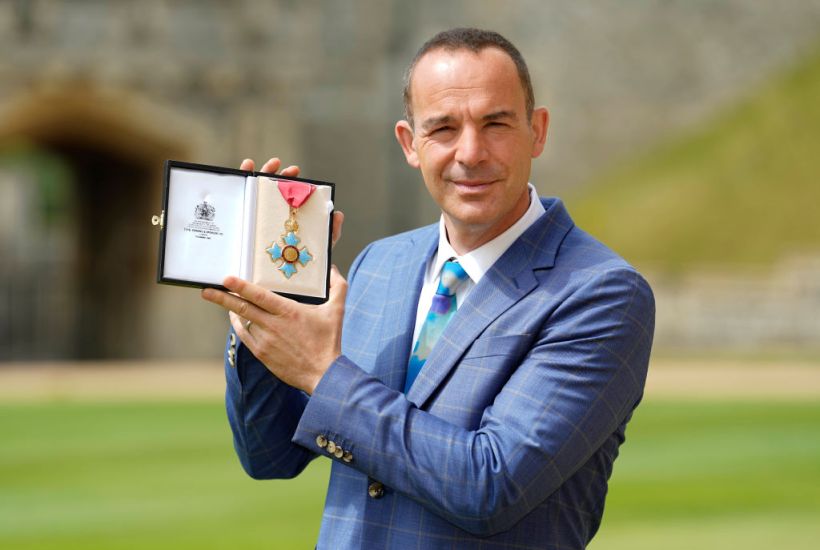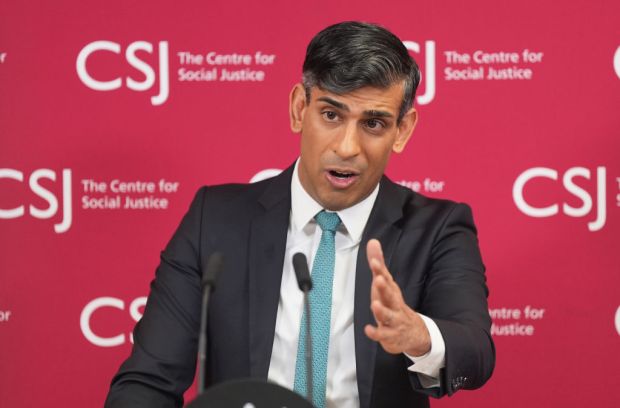Martin Lewis, the Money Saving Expert, has become the sage of the cost-of-living crisis. He is closing in on national treasure status, dispensing helpful advice on TV and online to help people avoid rip-off charges and ensure they are getting the benefits they are entitled to. This is all good work, but as the housing campaigner Anya Martin notes, Lewis, and resources like him, rarely focus on increasing earnings.
Watching the similarly themed American show How to Get Rich on Netflix, the contrast is noticeable. The expert here, an American named Ramit Sethi, does all the Lewis-style tricks to save pennies here and there – but also encourages his subjects to leverage their skills to make more money. This ultimately makes sense, as earning more, whether through reskilling or finding new work, has the potential to make a much bigger difference to your finances than simply scrounging.
Both the country and households are stuck in a scarcity mindset, focused on coping and managing, rather than leveraging the biggest changes
Martin Lewis’s focus is understandable. Advice about maximising income is often bespoke. People have different skills and circumstances, while a special offer on electricity is universal. So too are the basics of paying down debt and saving well. At the same time, however, there seems to be a general British reticence about hustling for more. There is a self-reinforcing cycle in which only get-rich-quick-scammers talk about these things, creating an air of scepticism around making money. Yet hour for hour, pushing for a better job is likely to do more for your life than switching accounts or juggling credit card balances.
It is a curious cultural phenomenon – but more interestingly, the same idea has infected our politics. ‘There’s no money left’ is a handy invocation for our politicians, who would rather argue about how things are distributed than growth. This week, the Labour party repeated it as they refused to scrap the two-child benefit cap, while Conservative chairman Greg Hands continues to become a one-man-meme of the line as a reminder of the last Labour government’s profligacy.
There is no denying that Britain is stuck. Real terms wages have remained level since 2005. Growth has similarly stalled. The median Brit is now closer in disposable income to the median Bulgarian than the median American. Our Danish equivalents are a quarter richer, the Dutch better off by a third. The UK is struggling to maintain its place as a rich country. In a few years, it will likely be overtaken by the nations that emerged from the half-century suppression of the Warsaw Pact.
This poverty is seen in our public and private lives. Our houses are older, colder, and smaller than equivalent nations. Our poorest citizens starve, while the modestly paid struggle to respond to personal economic shocks. The cheap credit that masked this for a decade is about to be revoked, with implications for mortgage, credit card and other debts. Even our highest earners struggle to find housing in the most productive parts of the country.
Our public realm is creaking – struggling to keep up with demand despite consuming an ever-greater proportion of the national economy. Experts recently warned that in future this will mean significantly increased taxes across the board, or else ballooning debt. This will be exacerbated by the growing dependency ratio, as a swollen Boomer cohort ages and outweighs the working-age population.
In light of this, whether there is money left or not becomes the wrong question. The real issue is whether we are maximising our potential to have more and whether our country could be richer. Just like households, there is only so much you can achieve by saving, or reallocating where you spend. Increasing the amount available has a much bigger impact.
With sustained economic growth we would have more freedom on what to spend and where. Maintaining the same level of taxation but in a bigger economy would give us more. This bounty could, depending on political preferences, be used to either fund services or to lavish in tax cuts. Either way, public or personal finances would be able to benefit in some way.
As Sam Bowman observes, the UK political sphere is largely nonchalant about growth. They do not seem alarmed that living standards countries we should hold as equal are now pulling away, while those we once thought as nothing more than a source of cheap labour and holidays are set to overtake us. In a tub-thumping post, he argues:
‘If growth gets mentioned at all it is usually to support some unfunded and poorly targeted tax cut. On the flip side, every proposed tax or spending cut is assessed in terms of its distributional impact, not its effect on growth.’
He is right. The British political spectrum is focused not on making the country richer, but on a suite of second-order priorities, most of which are impediments to better fiscal performance. It is the political equivalent of driving for two hours to find petrol that is a penny a gallon cheaper, making yourself worse off but with the feeling you are doing something good. Even when they celebrate growth, they are reluctant to make the hard choices which deliver it – instead, preferring the hard choices that come from a lack of it.
The result is that on a range of issues, we are leaving money on the table. Increasing your personal income can sometimes be hard, requiring extra education or a jump to a new job. Sometimes it can be easier, such as picking up extra shifts or remembering to bill for all the work you do. The same is true for national riches – and Britain, as Sam sets out, is failing on this on housing, energy, and other things that offer an obvious roadmap to supercharging growth.
Where I differ, is that I suspect that this is more than an elite problem. It is not just our most powerful who have become trapped in the mindset of saving and re-apportioning, rather than increasing our national wealth. The projects that politicians follow instead of making us richer are largely popular – from tackling obesity to regulating social media firms.
Beyond this, there is a significant bloc of voters who are focused on what will cost them, with little investment in the benefits. In almost every constituency, the most common form of tenure is outright homeownership. Homeowners largely benefit from the housing crisis and are insulated from its consequences. Most will be pensioners, often with defined benefit schemes – especially if they worked in public services. Both their wealth and income are divorced from the wider economic climate.
Even outside of this group, the case for growth has barely landed. In part, because international comparisons are hard to see and feel. It is also hard to truly understand the hypothetical, to picture what our lives would be like if we were 10 or 20 per cent better off. At the same time, people find it hard to connect the performance of the national economy with their own lives – a problem that was discussed at length around the discussion of Brexit. Adam Hawksbee of Onward has written thoughtfully about some of the messaging around this.
There is also now a dominant cultural mood which pushes against improvement. Time and again on social media, vox pops, and newspaper columns, there is a sense that demanding more is impertinent. Young, ambitious people are dismissed as ‘entitled’ when they rail against the structural economic issues that constrain them. ‘It could be worse’ has become a rallying cry.
Britain now seems all too comfortable with cutting its coat according to its cloth. The spirit of the Money Saving Expert is endemic. Both the country and households are stuck in a scarcity mindset, focused on coping and managing, rather than leveraging the biggest changes. The country needs to allow itself to become richer. This is, in part, an elite problem – but our politicians largely respond to electoral incentives, rather than leading them.
Like Sam and Adam, I attended the Civic Future Conference last week. It was refreshing and inspiring to be amongst a self-assembled vanguard people who believed in economic, technological and social growth. The challenge is, however, how this is reconciled into action, breaking through the incentives and structures which have built the status quo. One cultural change which will have to come is pushing past the cry of ‘there is no money left’ and questioning how we can get more, and quickly.
Britons are right to turn to Martin Lewis in straightened times. A few small changes can keep the wolves from the door. Truly transformational change comes, however, not from scrimping but from earning. The same is true at a national level. If we want the best for our people, the country must continue to get richer – and that will only happen with a change of mindset.
This article first appeared on the Joxley Writes Substack.
Got something to add? Join the discussion and comment below.
Get 10 issues for just $10
Subscribe to The Spectator Australia today for the next 10 magazine issues, plus full online access, for just $10.




















Comments
Don't miss out
Join the conversation with other Spectator Australia readers. Subscribe to leave a comment.
SUBSCRIBEAlready a subscriber? Log in